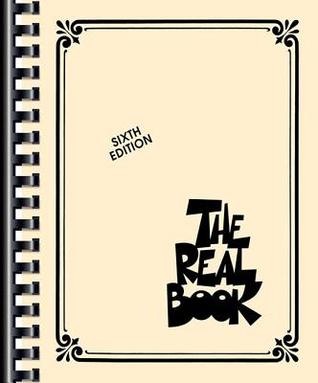I was once a Real musician.
Maybe I still am a musician of some kind, but I wouldn't call myself a Real musician any more. I haven't picked up the trombone in a long while, so I'm basically retired now. I'm OK with this, because I have a bunch of other interests now, which I'm sure I will eventually retire from when the time is right.
Back when I was a Real musician, I played the trombone in a bunch of salsa and jazz bands around Philadelphia. Most nights I was either in rehearsals, or stopping by jam sessions, or playing paid gigs on the weekends. It was fun, and then it stopped being fun, so I retired.
Being a Real musician is both less and more difficult than you think. Less difficult, in that anyone can do it. More difficult in that you won't get there overnight.
If you want to be a Real musician too, this post is for you.
Listen
Listen to as much music as you can. I'm in my 30s, so back when I really got all nerdy about this stuff, they had those deals where you could get "15 CDs for a penny". I would sign myself up for those under all kinds of alternate names. I'd get them delivered at work, at my parents house, etc. There was a period of several years where I would just nerd out and listen to everything I possibly could. Nowadays, people probably just download music from torrents. I think you should pay for the music if you can, but don't feel too bad about not paying for it if you can't.
If you are focusing on a certain type of music (jazz, rock, latin, whatever), you'll obviously listen to that mostly. But Real musicians listen to everything, even kinds of music outside of their comfort zone.
Play
By this I mean just have your instrument ready to go, and play along with whatever music you're already listening to, even if it's not the right style. I would play my trombone along with whatever pop music was on the radio. Play is different from, and in some ways more important than, dedicated practice (more on that later). Playing should be fun and spontaneous, and you should be doing a lot of it.
Of course, Real musicians soon get bored of playing music alone, so you will need to meet some other musicians. You'll have to go to places where other musicians go.
Because I was into jazz, I went to a lot of jam sessions and open mic nights. The first time you go to something like that, don't bring your instrument, just go to listen. Each jam session has a "character" and you want to make sure that, as a noob, you can fit in. Some sessions are more noob-friendly than others. Some have sign-in sheets, and are mostly music majors trying to outdo each other. But don't worry, because people are generally nice, and the bar for being a Real musician is set much lower than you think. You don't need to know theory or modes, you just need to be willing to listen and play. You'll meet all kinds of interesting characters and you'll learn a ton about music, and probably a ton more about things outside of music.
Practice
Remember when I said that play is different from practice? Well you need both. All musicians play, but Real musicians practice too.
Practice is often repetitive and lonely, but as they say, it makes perfect. This can be tedious, and it will take years, but you need to know your instrument inside and out. You need to know scales and arpeggios. You need to know how different playing techniques alter the sound, and be able to play the full range of notes, and train your muscles, brain, and lungs to do what they need to do.
I don't know of any better jazz study aids than the Jamey Aebersold Play-a-long books. Start with Volume 21, "Gettin' It Together" which includes 2 CDs of songs of every key in major and minor, and a few common blues changes, and then play it constantly. Then add Volumes 1 (intro to soloing), Volume 2 (blues), Volume 3 (ii-V7-I). Then add any other volumes you are interested in (and there are hundreds). Again, these can be pirated, but I think you should buy them if you can afford them, as they are very worth it.
Study
You could be a great musician if you know all the songs, scales, and notes, but you'd still be an incomplete musician if you don't know the why. Real musicians study their history.
Music is a constantly evolving artform, so to really understand it, you need to know the context of the times in which it was created. Imagine what it was like for the early blues artists. Then it evolved into a commercial success with big bands that would travel around and play at dance halls. Imagine being a musician like Charlie Parker or Dizzy Gillespie, who after playing the same music for years gets bored. They form small groups where they can really show off and the result is bop style. Coltrane comes along and gets bored with that and basically starts throwing different chords into the standard blues and rhythm changes. etc etc.
Music is a conversation that took place over years, and Real musicians understand this and want to be part of that conversation.
